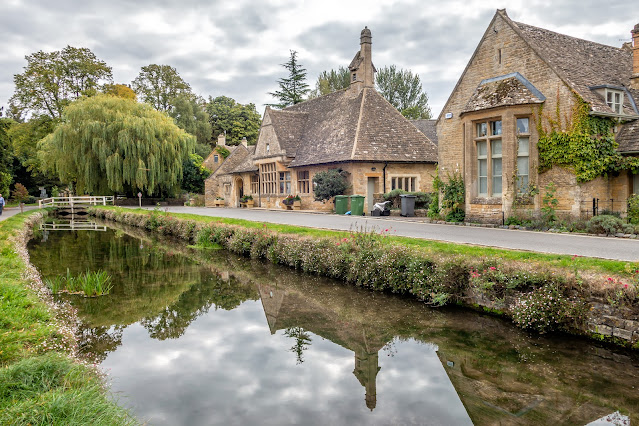Broadway Folly and the quiet village of Stanton

The 'Broadway Folly` was the brainchild of Capability Brown and designed by James Wyatt in 1794 in the form of a castle, and built for Barbara, Countess of Coventry in 1798–1799. The tower was built on a beacon hill, where beacons were lit on special occasions. Lady Coventry wondered whether a beacon on this hill could be seen from her house in Worcester — about 22 miles (35 km) away — and sponsored the construction of the folly to find out. Indeed, the beacon could be seen clearly! Nowadays the tower is a great tourist attraction for the area. The view from the ground level near the tower. From the top it must be magnificent but having to book, and pay a small fortune, puts us off from going to the top. Mind you, the number of steps might have swayed us as well! On to the small village of Stanton and a look at its church of course. A view of the main street in Stanton and an individual house near the edge of the village. I just love these quaint and sleepy villages, this one being...


